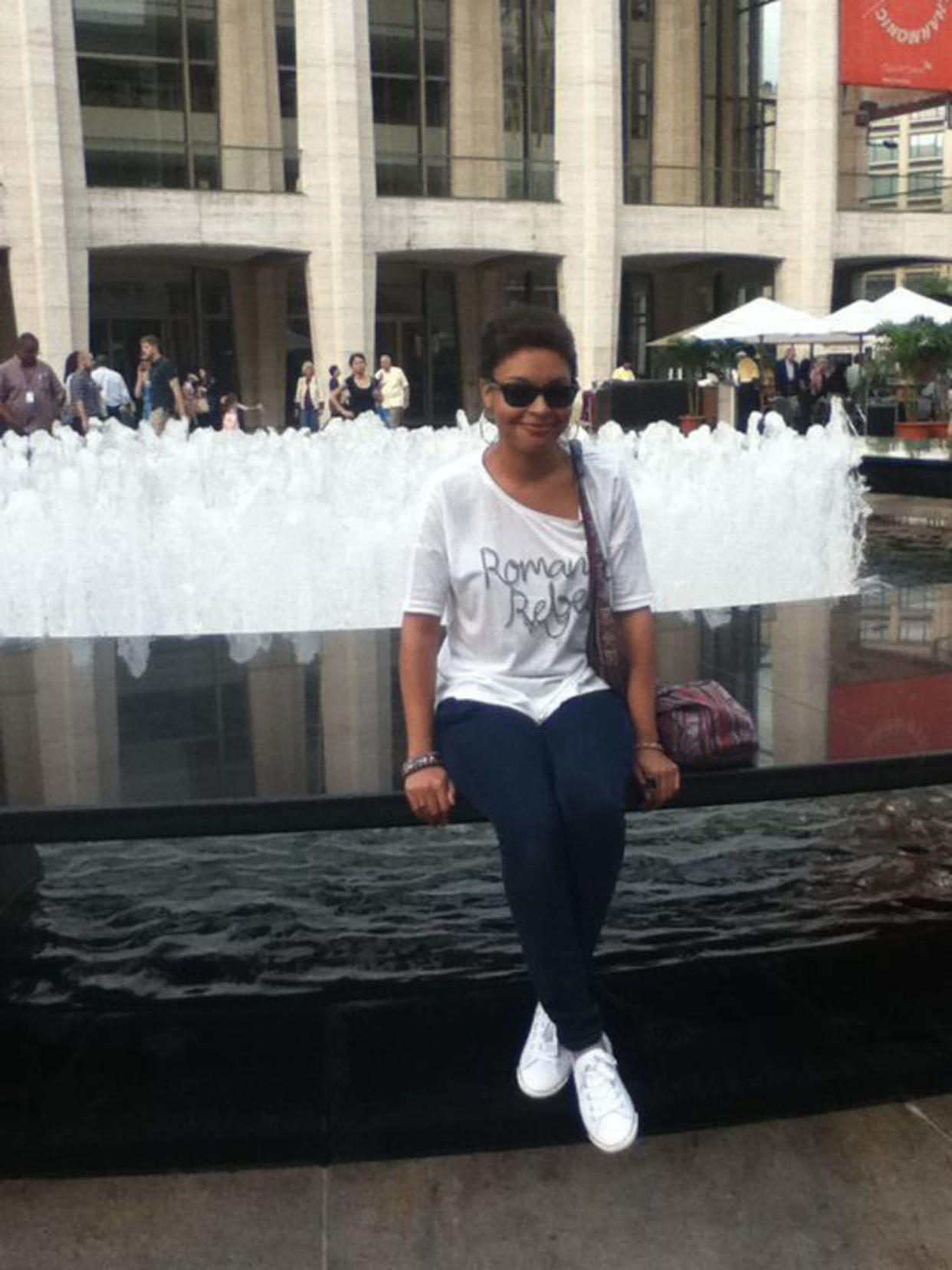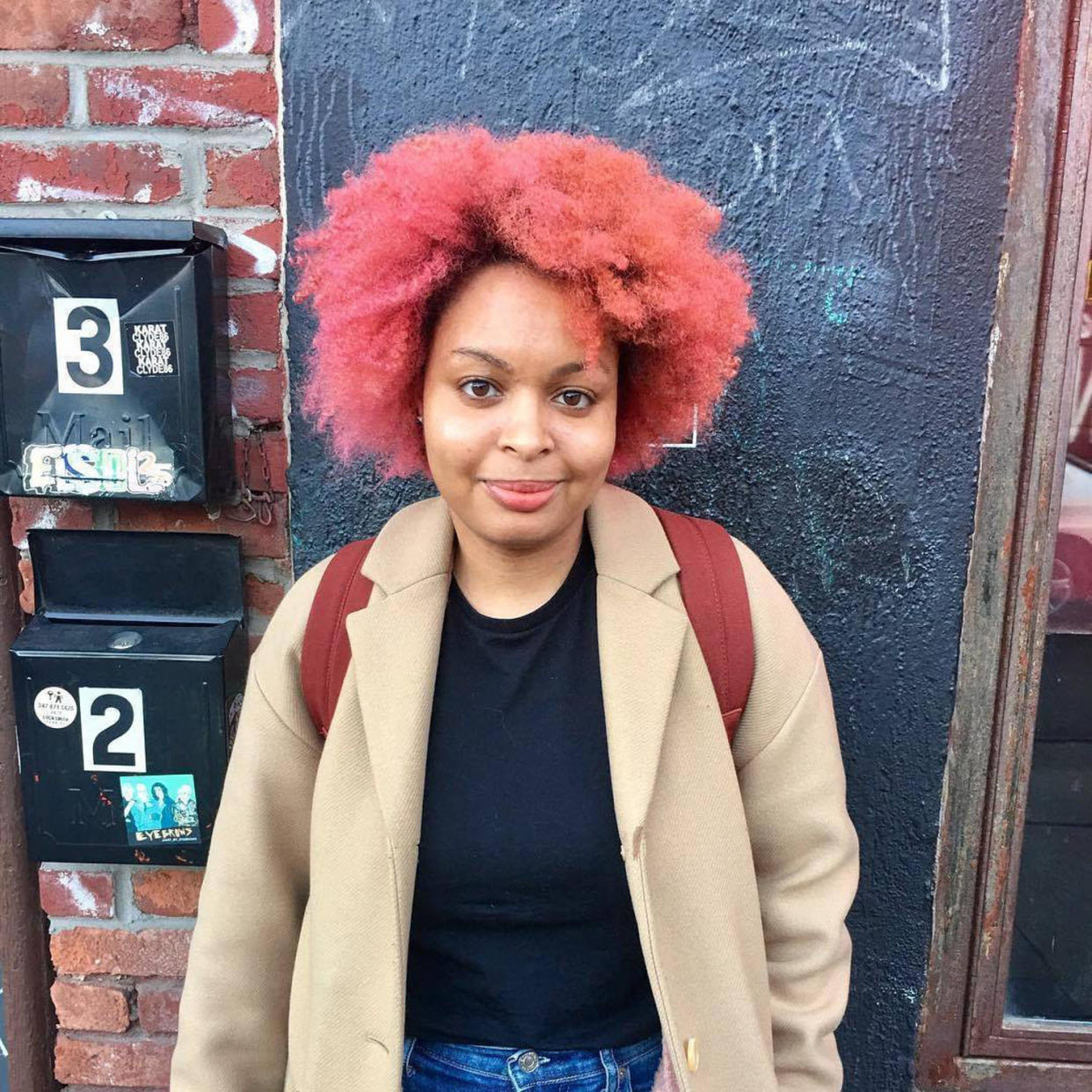I shouldn't have to prove anything about my natural hair. Neither should Beyoncé
What happens when one of the biggest stars in the world must prove that her hair is her hair?
Beyoncé is a multitalented artist, dancer, singer and businessperson. And recently she did something she rarely does anymore: She spoke to her audience. On Instagram, she posted a video of her long blond strands being washed and conditioned, and then she was given a silk press.
In her voiceover, she explained why she even felt compelled to share this video: “The stigma and misconception are that people that wear wigs don’t have long and healthy hair. That is some bulls—, ‘cause it ain’t nobody’s business.”
“I’ve chosen color over perms or relaxers,” Beyoncé continued. “I’ve managed to keep my texture and my curls even with my hair so blonde.”
Granted, the video is an ad for her new hair care line, CÉCRED, but many Black women understood what she was saying: When you are a Black woman, the assumption is that your natural hair could never be that long. It could never be that healthy. Especially if you are someone who likes versatile styles with wigs, weaves and braids. There are a lot of politics wrapped up in how you choose to wear your textured hair.
If even Beyoncé, a light-skinned Black woman with looser curls, must prove that her hair is real, what does that mean for the rest of us?
In the early 2010s, the popularity of natural hair vloggers on YouTube inspired many Black women to stop chemically straightening their hair and embrace their curls. I was one of them. In 2011, I completely stopped perming my hair and grew out my pixie cut. At that point, I had been chemically straightening my hair for over a decade.

I spent countless hours huddled around my laptop in my dorm room watching tutorials on how to style my TWA — Teeny Weeny Afro. I had mom buy me raw shea butter from Harlem and coconut oil from Trader Joe’s. It is funny looking back on it now, how much I did for the sake of my curls. The hair care market didn’t have as many options for natural hair products then as we do now, so we were out here making concoctions in our kitchens, hoping for the best. It was a lot of trial and error.
I quickly noticed that I was treated differently with my natural hair depending on who I was around. Amongst Black people from an older generation, I’d get labeled a radical Angela Davis type, while peers closer to my age would compare me to an earthy neo-soul singer like Erykah Badu. Either way, my curls proved undeniably that I was a woman of color.
Growing out my natural hair without relaxers or perms taught me a lot about how to properly take care of my curls, but I also made plenty of mistakes ... with some very questionable haircuts. My curiosity led me to focus my college senior thesis on the history of Black hair and beauty culture in the U.S.
How you wear your hair isn’t just a personal choice: it's also a political one. I was fascinated by the discourse around Black hair — and that meant I was also keenly aware of the potential downsides of embracing it. I had a lot of tough conversations with my parents about how my hair could hurt my future life choices. When I entered the workforce in 2013, I was afraid my hair would prevent me from finding employment. Instead, I found work as a journalist, and I’m lucky to have had the chance to write and produce multiple articles and videos on the subject of Black hair.
Not everyone is so lucky. But change is on the horizon: Laws like The Crown Act, which was enacted in 2019, are helping combat racial discrimination related to hair in the workplace.

Like Beyoncé, I love dying my hair, and I have been wearing different variations of blonde for the last nine years. I even tried the rose gold trend a couple of years ago. But unlike the vocalist, I was not a huge wearer of wigs or weaves. For the last 13 years, I mostly rocked an afro. Because of this, the assumptions around my hair were completely different. My natural hair was always out, so no one really questioned if my hair was real or not. Colorism and having a looser curl pattern have given me privileges that many dark-skinned women with more coily hair have not received. For example, people rarely questioned if my hair was really mine, or if it grew.
Beyoncé's hair — and whether or not it's real — is hardly a new subject of fascination. In 2019, her hair stylist even posted a video online to show off the singer's natural hair. He seemed to be addressing critics who claimed her hair was fake, writing: "WHAT WEAVE WHAT WIG. YES YES ALL NATURAL." And yet to this day, there are still comments on his post from people who claim the singer is wearing a wig or a weave.
There is a decades-long misconception that Black women can’t possibly have long natural hair. That’s false. But, also: There’s absolutely nothing wrong if someone wants to wear wigs or weaves. Women want choices and creative freedom when it comes to their hair. I see trendsetters in my own community switch up their hair regularly. I think about my mom, my sister, my aunties, my cousins, who all experiment with their hair all the time. Even for myself, the last two years I have been experimenting with braids, and my hair has never been as long and healthy.
Black women spend 9 times more on hair products than non-Black consumers, according to a study in the International Journal of Women’s Dermatology. We put so much energy into our hair. They truly are our crowns of glory. We already must deal with so many social stigmas around beauty standards that center whiteness, and it has always been about adapting to those standards.
We should not have needed a video from Beyoncé to prove anything to us, because Black women do not need to prove their worth through their hair — or in any other way, for that matter.
As we’ve progressed further with more diverse hair types featured in the mainstream, I don’t struggle to find representation in the beauty aisles at my local stores anymore. My hair care products aren’t reduced to a tiny shelf labeled “ethnic” hair care. I don’t have to have to create my own hair products in my kitchen based on recommendations by YouTubers. Embracing my natural hair has only gotten easier because of these changes. It's allowed me to get creative.
So please, let us flip between long blond strands, goddess braids, a picked-out afro, or a fresh silk press without shame or stigma. I know Beyoncé does — and I will, too.
This article was originally published on TODAY.com
